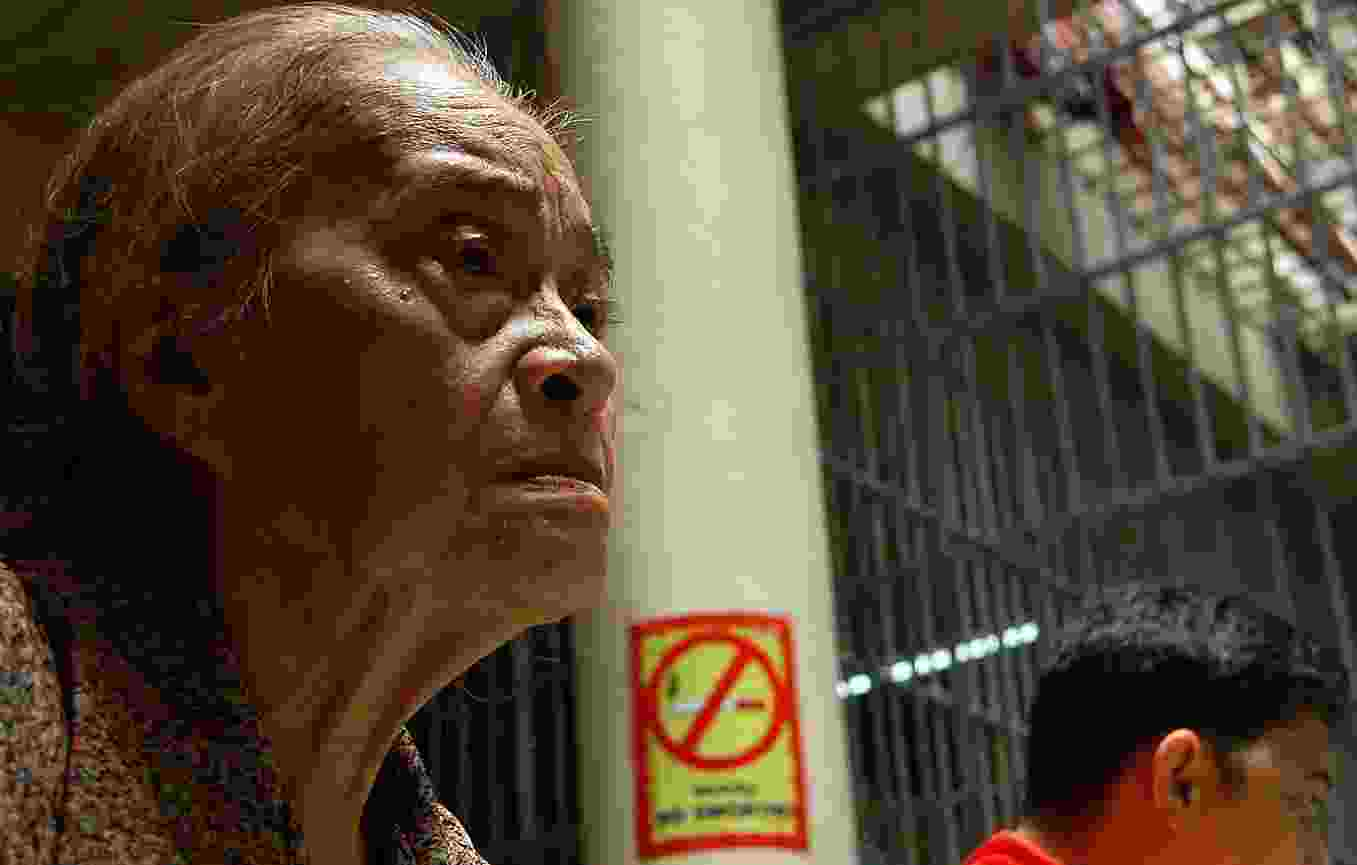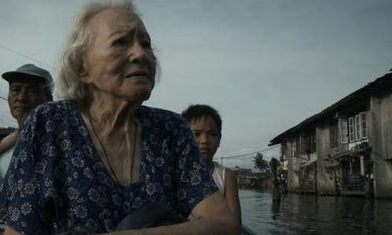Lola
played at Montreal's 2010 Festival du nouveau cinéma.
Ron
Wilkinson, who writes for monstersandcritics.com,
gave the film 3.0 out of 4. For
festival ratings, click HERE.
Not the knockout
punch of his previous Kinatay or Serbis
but an unvarnished look into the inner-workings of a world
forced to brutality.
 Lola
(the Filipino word for grandmother), the third major work
of Cannes auteur Brillante Mendoza, had big shoes to fill.
It had to match the simmering anger and seething underbelly
pungency of Serbis and Kinatay. Although
it may lack some of the raw energy of those films, it brings
a dialog about right and wrong to the screen that has never
been said better.
Lola
(the Filipino word for grandmother), the third major work
of Cannes auteur Brillante Mendoza, had big shoes to fill.
It had to match the simmering anger and seething underbelly
pungency of Serbis and Kinatay. Although
it may lack some of the raw energy of those films, it brings
a dialog about right and wrong to the screen that has never
been said better.
The
film starts with the tragic death of the lola's grandson
by stabbing. As the report goes, the teenager was killed for
his cell phone in the violent suburbs of Manila. The viewer
knows there was probably more to this than was included in
the initial report, but a suspect is apprehended and put into
jail. The movie starts with the aggrieved grandmother fumbling
through the squalor and danger of the roughest barrios in
the world to scrape together the resources for a funeral.
The ceremony will be the most expensive thing she has ever
purchased. It is by far the saddest.
As
this proceeds, nickels and dimes at a time, the accused is
introduced. Although he is intially depicted as a violent
and disturbed young man, his humanity is brought to the surface
as the crime itself recedes into the background. His grandmother
becomes as much the focus of the story as the grandmother
of the deceased. While the latter works every angle in the
poverty-stricken ghetto to buy a casket, the former seeks
first justice for her grandson and then works towards the
recommended amicable settlement.
The
amicable settlement consists of an apology and a payment of
a sum of money to the grandmother of the victim. As this story
unfolds the audience is treated to two profoundly meaningful
stories. The first story is about a grandmother saving her
grandson from prison that is tantamount to a death sentence.
The second story is the struggle of the bereaved to accept
the heartfelt apology of the family of the perpetrator and
the cash settlement instead of demanding the pound of flesh
that is their right by law.
The
concept of buying freedom for a man assumed to be guilty of
homicide will catch many off guard. Things are not done that
way in North America. At least they are not supposed to be
done that way. But America has prisons where inmates survive
and are sometimes even rehabilitated. In the Philippines and
many other countries, a sentence in prison of five years is
a death sentence unless the family keeps a constant supply
of food coming and the prisoner is strong and a skilled fighter.
The odds of survival are miniscule.
The
story turns out to be about acceptance and forgiveness instead
of being a mystery thriller about collaring the criminal.
The implied lesson is that we are all capable of criminal
acts if we are pushed far enough. As we see more and more
into the family life of the killer we learn that they are
starving because road construction has crippled their hand-cart
based transportation business. They are losing their meager
possessions one by one as they struggle to support a son who
is himself the victim of birth defects.
Great
cinematography of monsoon rain as the watershed decisions
of life and death come to pass. The barrio is on the water
and the funeral is even held in boats on the water.
In
the end the two matriarchs have the fateful meeting in which
they join in their sorrow and their hope for the future and
do the best they can. The fact that they do it outside of
the law is significant. Forgiveness and healing are not legislative
mandates; they are practical remedies for the inherently predatory
nature of humankind.
Mendoza
gives another solid and commendable work, finding beauty in
the ugliness of the human condition.
Directed
by: Brillante Mendoza
Written by: Linda Casimiro
Starring: Rustica Carpio and Anita Linda